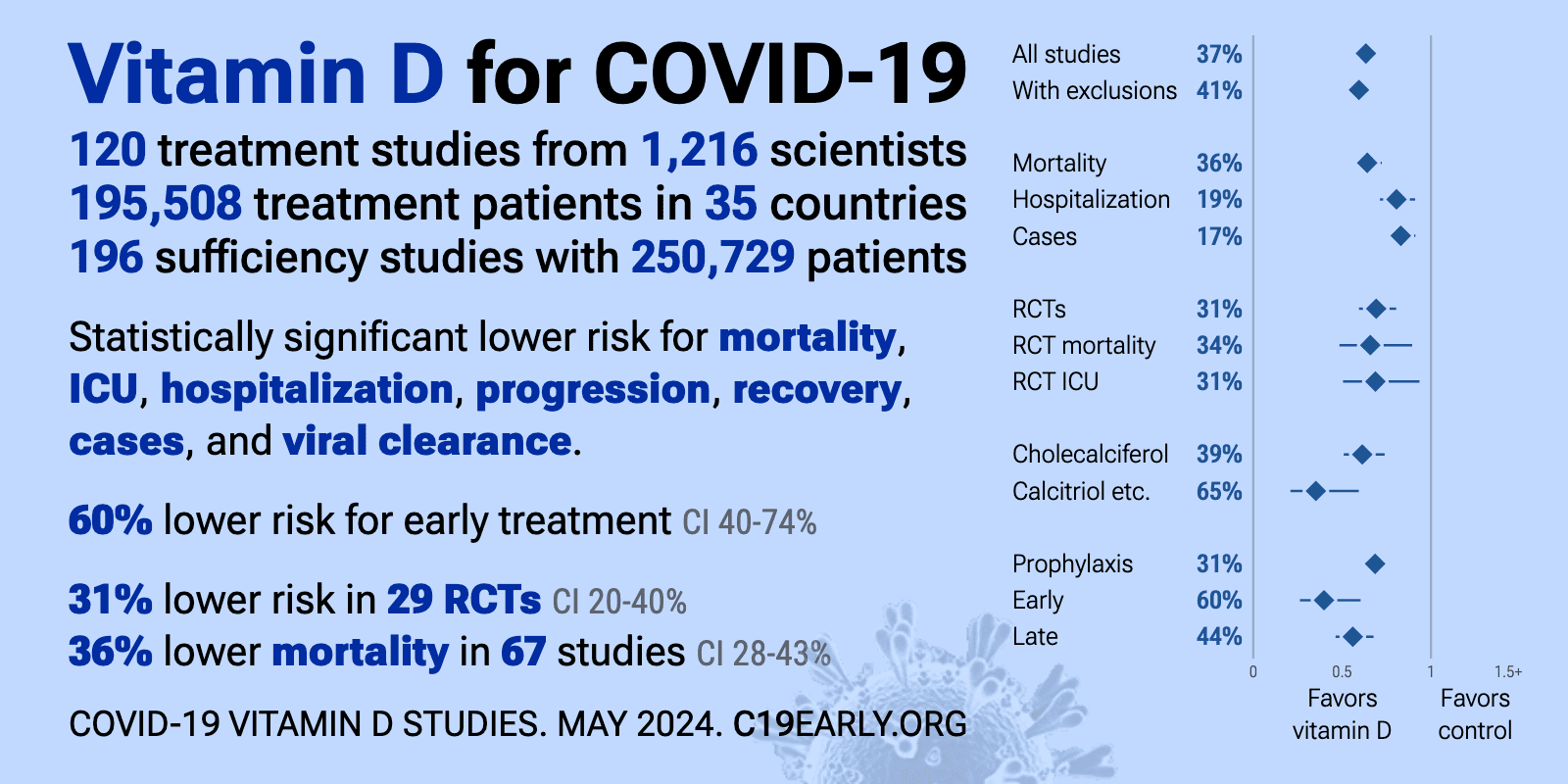I've been taking 10,000 units a day for years, my doctor checks my levels and nags me if it's not high enough. (He's a longevity-oriented doc, one of the things he's a stickler about.) When covid started up, I had a hunch and checked, looking for countries with high D sufficiency, comparing it to outbreaks—Thailand and Vietnam stand out as the highest sufficiency in the world...while coincidentally being almost devoid of impact from the virus. Correlation isn't causation, but I figured it would be interesting looking back in a couple of years.
In the beginning, my local nutrition store got wiped out on C, and zinc was hit pretty hard. I saw mention of NAC somewhere and thought "of course", expected the sstore to be cleaned out, they had tons of it. (I used to take it daily decades ago, had fallen off.) Cheap, no-brainer (take C with it).
A few months ago, I saw a doctor on a tv news program, he said "D, zinc , NAC, C, reduced glutathione". OK, had never taken the last one, added it, what the heck.
As has been said, D3. But if you're taking a calcium supplement, it's probably a good idea to ditch the calcium. If you eat dairy, you'll have plenty anyway. (I say "probably" because like most things, you can find evidence that it's very dangerous in theory, though some studies don't show that to be apparently true, etc. Still, it doesn't seem like a good idea. A minimum, it's unlikely that calcium supplements are going to do you any good anyway, barring a diet lacking it, so it seems you're just risking the bad.)

